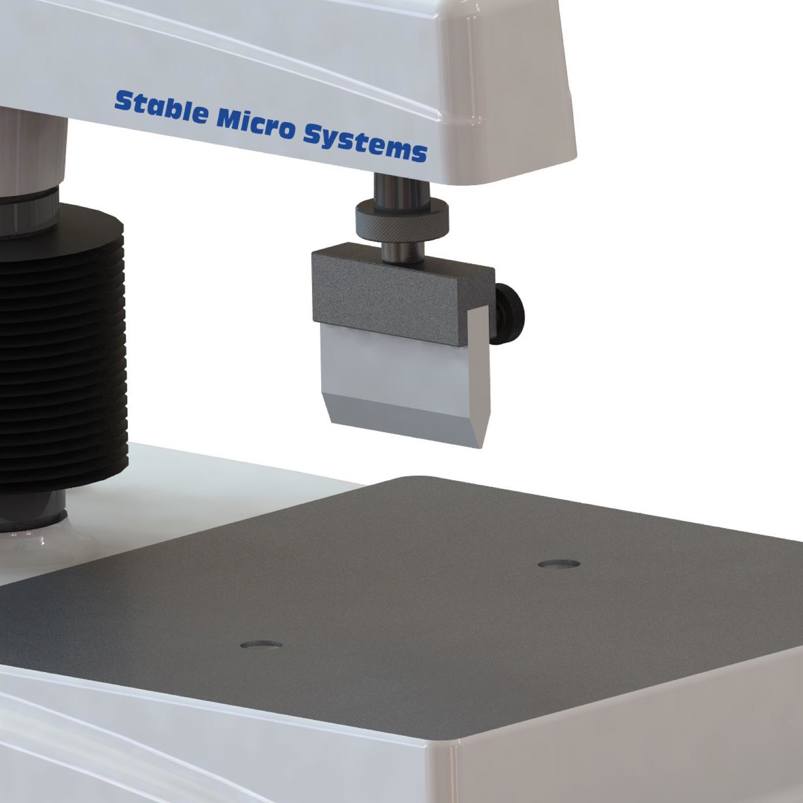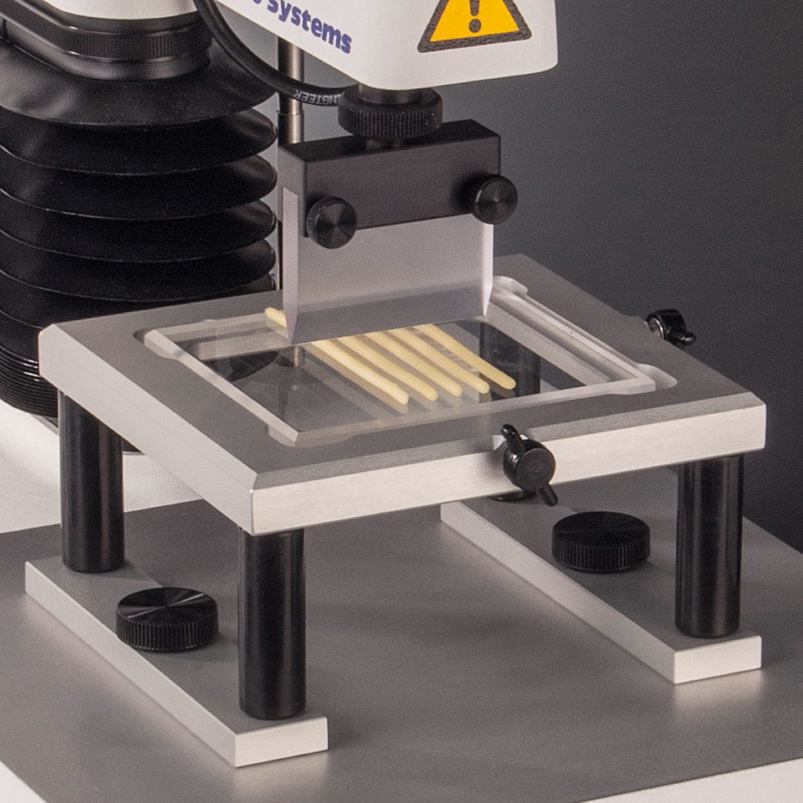Product overview
This newer blade was developed after extensive work carried out by a set of collaborators to improve the AACC method for cooked pasta quality/firmness measurement. Whilst the existing blade (A/LKB-F which is in accordance with AACC Standard method 66-50.01) will still be available, this new blade is to be used in accordance with the improved AACC standard method (66-52.01).
This new method (66-52.01) contains more specific detail on sample preparation (66-51.01) and improved explanation of test settings and analysis and was approved after high reproducibility was determined between labs in March 2019 by the AACCI from the study of methods for measuring spaghetti fully cooked time (FCT) and cooked spaghetti firmness (absolute peak force, area to absolute peak force, total downstroke area, and total positive area).
This blade does not tend to be used for any other method or sample type.
How does the AACC Standard Pasta Blade work?
Ideal sample form
Uniform pasta strands.
Benefits and limitations
- Knife is made from perspex which is a soft material – this probe is therefore easily damaged.
Technical information
Installation
Full installation instructions are provided within the Education Zone of the latest Exponent/Connect software version and on the technical information sheet accompanying this product.
Chemical compatibility
Stable Micro Systems probes and attachments are commonly made from four materials: anodised aluminium (AA6082 T6), stainless steel (316 T), Delrin (acetyl copolymer) and Perspex (polycarbonate).
In general use, probes and attachments made from these materials will be suitable for testing food products and inert non-food materials.
The four materials listed above are not universally resistant to all types of chemicals and as such the compatibility of the probe/attachment material with the product (to be tested) must be established to prevent damage to the probes and attachments. If the compatibility of the product with the probe is unknown to the customer then the chemical information about the product (Material Safety Data Sheet or Product Data Sheet) should be submitted to Stable Micro Systems. Stable Micro Systems will then assess the suitability of the probe/attachment material for use with the product and advise accordingly. If this advice is not sought then Stable Micro Systems will not accept liability for probes/attachments damaged by chemical attack from the product being tested.
Cleaning and maintenance
All probes and attachments may be cleaned in warm (or hand hot) water using a mild detergent. A soft brush may be used but abrasive cleaning aids should be avoided. Stable Micro Systems products should not be microwaved or cleaned in a dishwasher.
Screw threads should be lightly lubricated after drying using a light lubricant, e.g. petroleum jelly, mineral oil. This will aid the fitting and unscrewing of the item. Each component of a probe or attachment should be wrapped separately when stored, to avoid scratching or chipping. This will safeguard against any unnecessary damage to the accessory.



